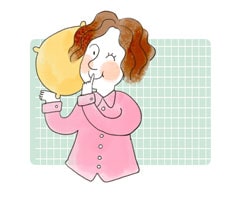
7 tips on how to fall asleep fast | Dodow
Check out these 7 tips to sleep well, whether you want to better your eating habits or do breathing exercises or meditation.
Lire la suiteInspired by yoga, hypnotherapy and meditation, developing Dodow immersed us into a deep study of alternative methods for fixing health problems; sleeping was just a first step.
We would like to share with you our studies, and help you discover health and well-being advice, that are easy to put into practice.
Your bedroom is one of the most important parts of your home. After all, you will spend 25 years of your life sleeping there. How should you arrange it for minimal sleep problems? Without becoming a Feng Shui master, there are some arrangements you can make to give your room downright soporific qualities.
If you or your lover worship Valentine's Day red, we encourage you for the sake of your sleep (but also for the sake of good taste) to think twice before painting all the walls of your room. Cool colors like blue or green have a soothing quality, while warm colors like red, yellow or orange increase the heart rate.
Always prefer pastel colors rather than vivid colors, which are milder, with a matte rather than glossy finish - but keep some complementary colors for the cushions or other decorative objects. Do not let your room be overly dreary, which in the long run may depress you (this is also why colors such as gray and black are to be banished). Try creamy whites and off-whites, taupe, watery greens or periwinkles.
Order and simplicity are the key to a relaxing room. Minimalist decoration will prevent you from feeling overwhelmed, and orderly belongings will avoid making you think about the worries of your daily life. Banish screens of all kinds, they are detractors of sleep.
Keep the bare minimum, but do not live like a bachelor who has just left the family home: your room must remain welcoming. Curtains or blinds will allow you to maintain a darkness favorable to falling asleep by protecting you from the light pollution of the street.
Do not forget to clean regularly under your bed to evacuate dust that can cause allergies and lightly obstruct your airways at night.
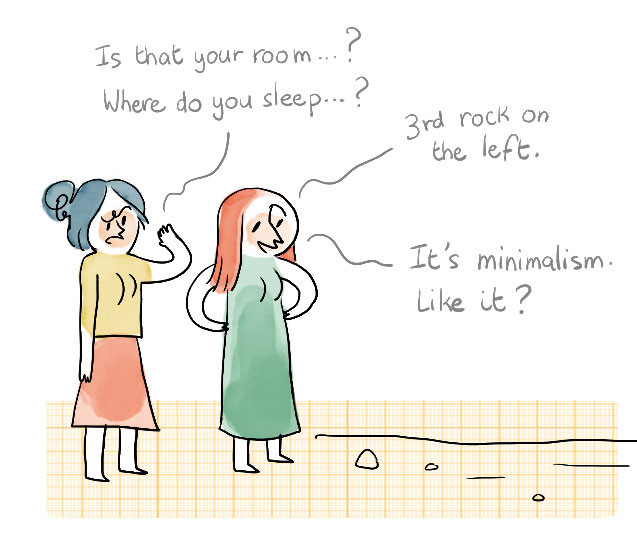
To fall asleep, your body lowers its temperature, so it is useful to give it a boost by making sure that your room is neither too hot nor too cold. 18°C (64°F) is the perfect temperature to fall asleep, but you can go up to 20°C (68°F).
If you are a smoker, do not smoke in your room (or anywhere else really, that would be pretty nice). Regularly ventilate your room to properly oxygenate and control the temperature.
Essential oils can help you sleep well: in your bath, applied to the skin as ointment, in pillow mist or interior misters. Some plants can have sedative properties. Already used in herbal teas for some (chamomile), others like basil, lavender, marjoram or neroli essence have varied effects. To learn more about what you can eat to fall asleep, take a look at the foods you eat before going to bed.
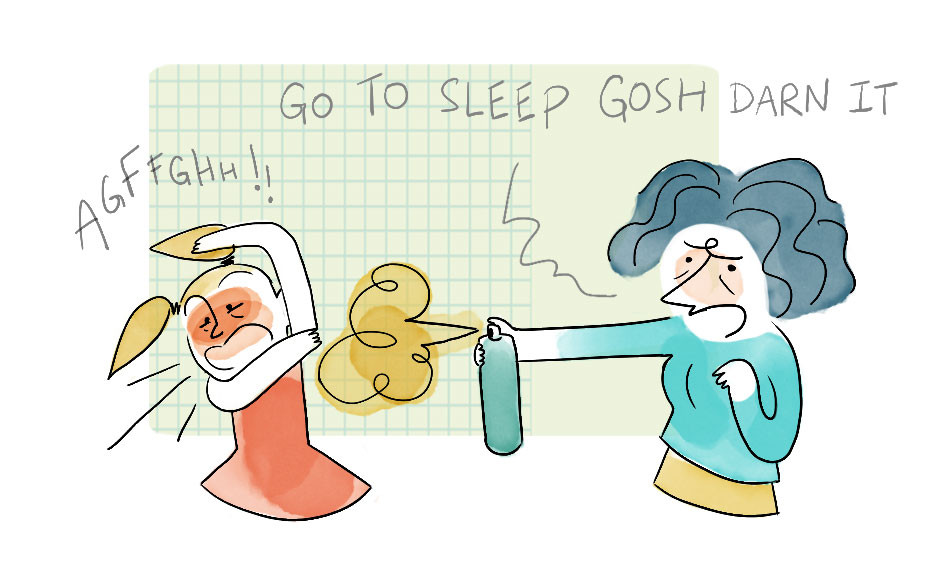
Texture and firmness of the pillow, mattress with bi-conical springs, bagged, or in a continuous thread, filling, length and width, duck down, goose or synthetic down ... all of these criteria are initially quite mystical, and must also fit into your budget. A complex quest which depends on your preferences and morphology, but which will greatly contribute to improving your quality of sleep.
Turn over your mattress regularly to lengthen its life (a mattress normally lives ten years, but without turning it over it can wear out after 5).
We do not often think about the effects that sleeping positions can have on us, but they do have consequences. Crouched, fetal position, starfish or on your back, some positions are less conductive than others to easy breathing, while some positions may tend to crush vital organs.
For the least problems try to sleep on your back, the position that takes the least risks (taking into account that you are already in bed, so the notion of "risk" is very relative).
If you are a couple, you may already know that sex promotes sleep. On the other hand, some specialists squarely advocate having a bed dedicated to conjugal activities, and a bed to sleep properly, alone, with maximum comfort. Some might try and make you believe that your couple is going to the dogs if you are not permanently taped to each other, but it really depends on your relationship - there is no reason to sleep piled up like livestock if it hurts you.
There is also the solution of having twin beds glued together, which you can separate if you feel a bit overwhelmed. The least drastic solution is to take a king size bed, a good compromise. However, if you sleep badly regularly, chances are that it will also affect your couple, so it is better to make arrangements ...
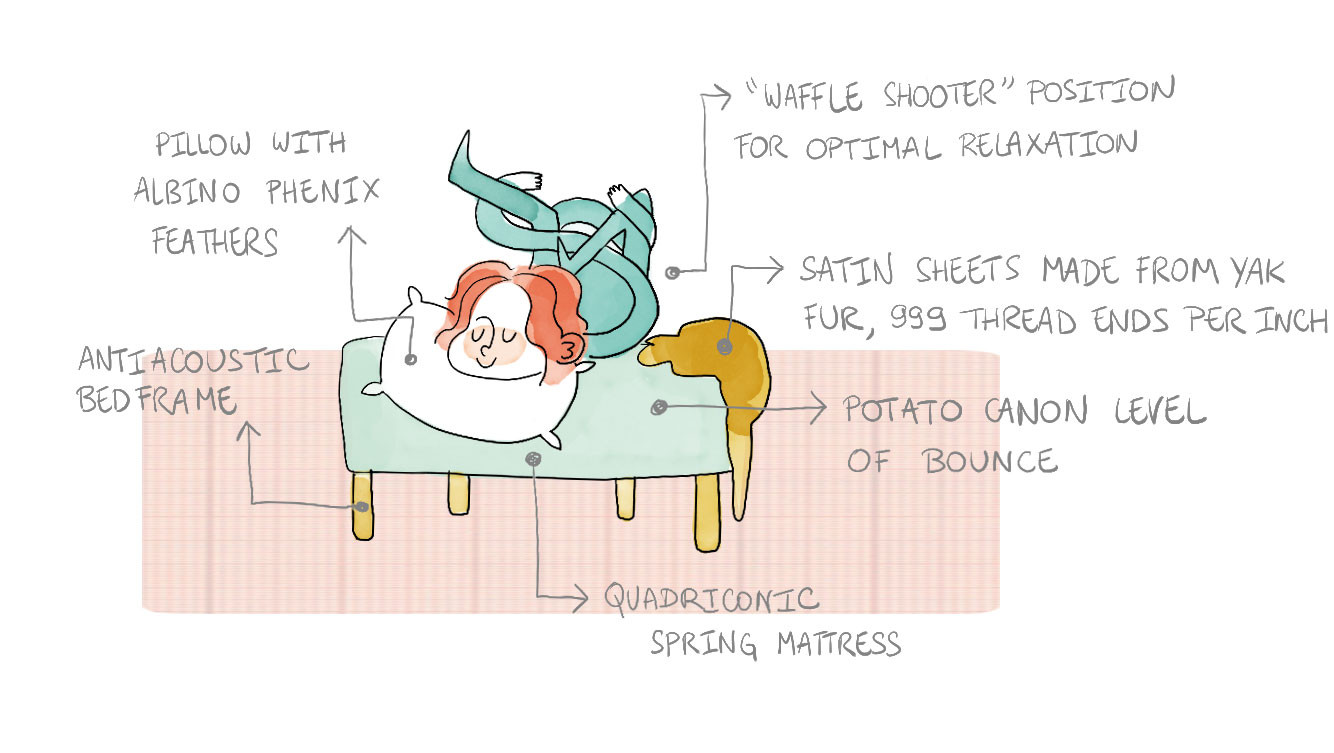
A noisy environment is one of the biggest factors of insomnia. It is therefore vital to be able to isolate yourself in your room and eliminate sources of noise. However, too much silence can also be agonizing ... a white noise generator can possibly help you out.
If you regularly forget to turn off your night light, know that it is always better to sleep in complete darkness: light inhibits the secretion of melanin, the sleep hormone. When you are exposed to light during your sleep, your cortisol level increases, which affects your quality of sleep. According to a study over a 30-year period by the Harvard Medical School, nurses working at night had a breast cancer incidence 36% higher than those working during the day.
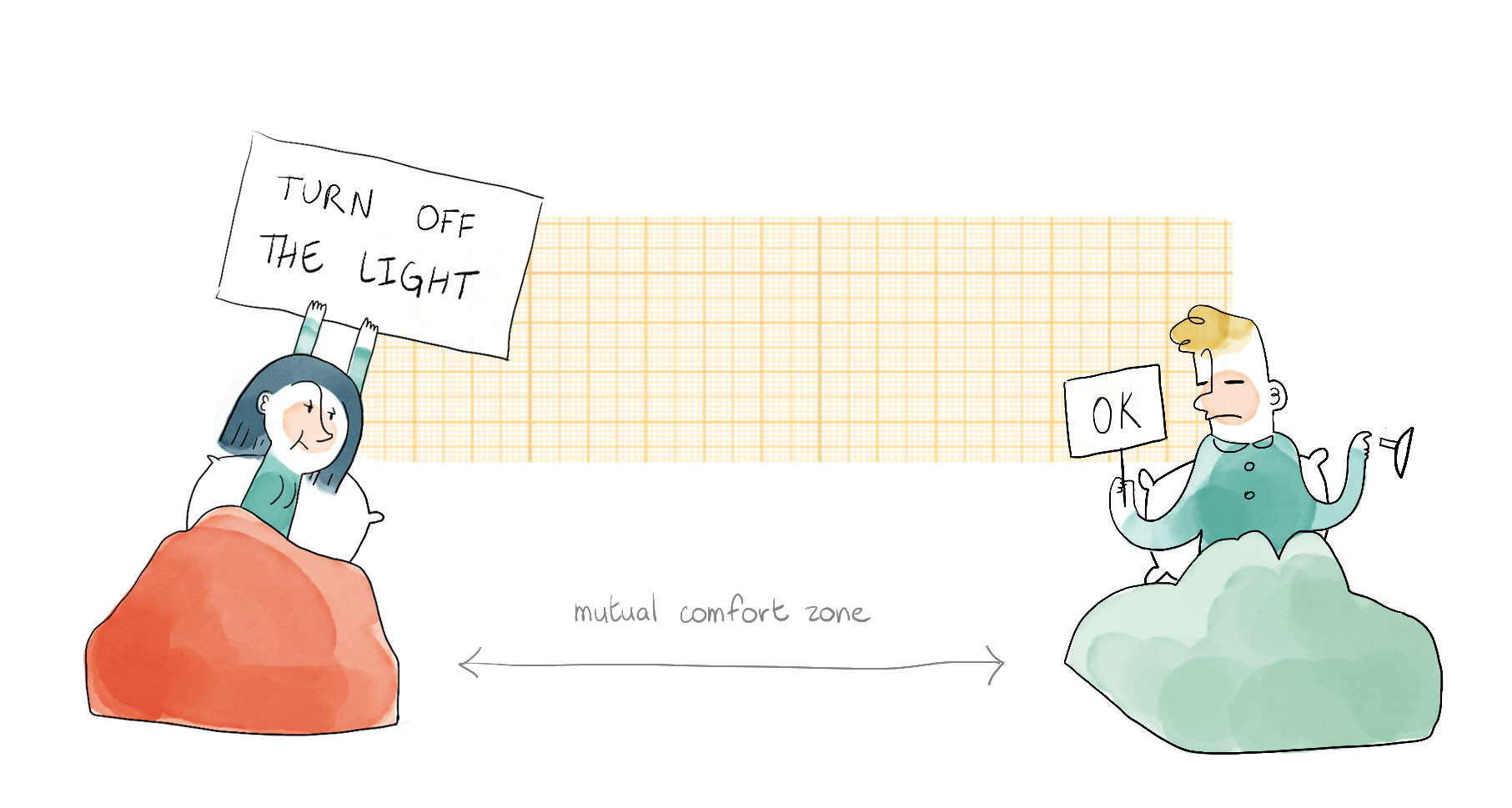
Beds are for sleeping and getting laid... and nothing else! If you go to bed at regular times and do not work in bed, this will cause your body to fall asleep as soon as you are between your sheets. On the other hand, if you're the type to watch TV from your bed with a meal tray or work on your laptop until exhaustion, stop it all! Prefer a hug with your partner to relax, or even a book (provided you leave it at the end of the chapter and do not continue until 3am).
Feng Shui, the Chinese discipline of spatial planning, is known to regulate the flow of Qi (the innate spiritual force to every living being) for the balance and harmony of the house. If all other tricks have failed (or if you just like to have a nice story to tell when you have friends over), you can always try. Keep in mind though, Feng Shui is not scientifically verified.